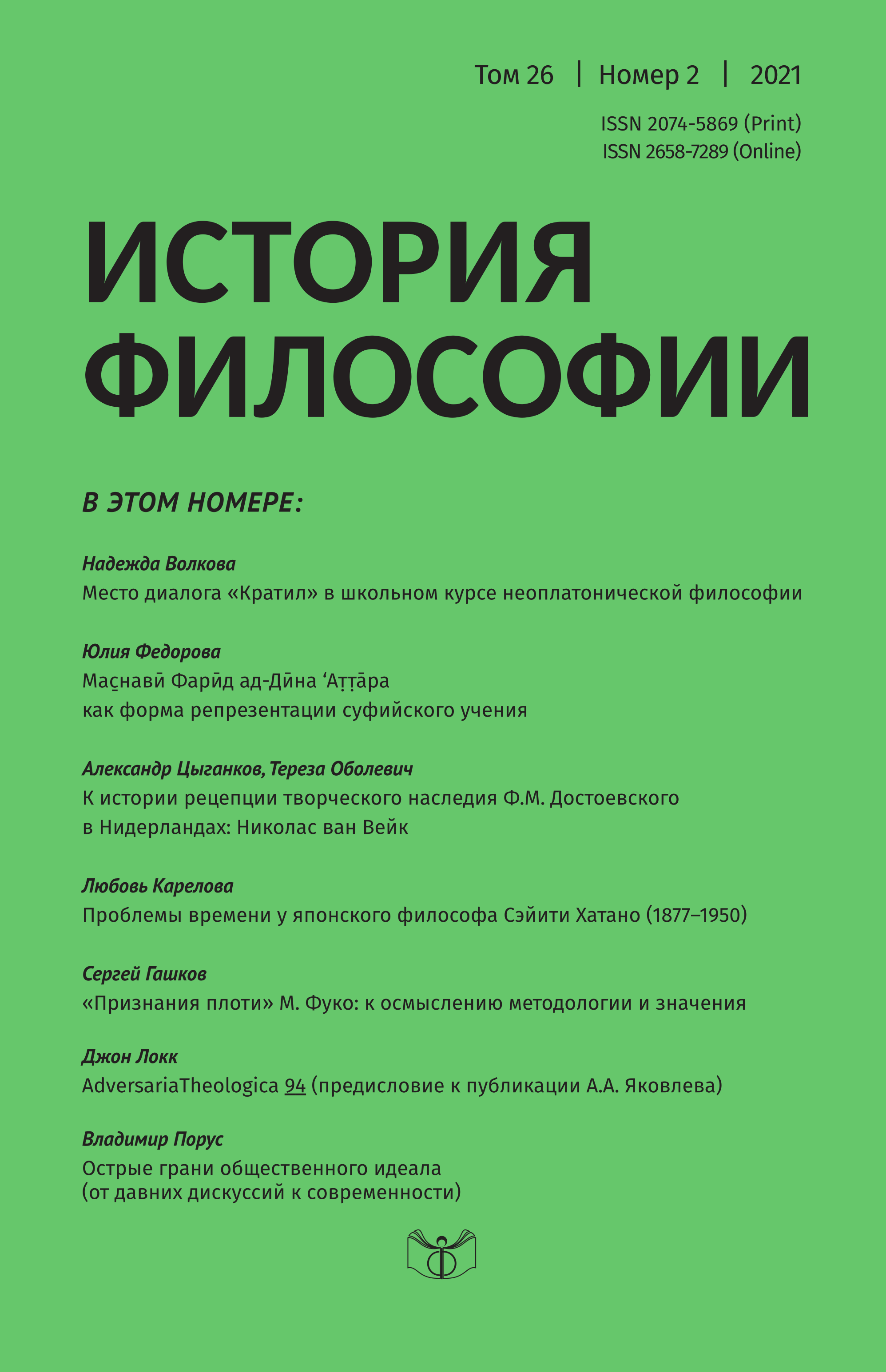Japanese Philosopher Seiichi Hatano (1877–1950) on the Problems of Time
Keywords:
Hatano Seiichi, time, temporality, life, subject, object, Other, loveAbstract
The name of Seiichi Hatano (1877–1950) is still not so widely known outside of Japan. At the same time, he belongs to those outstanding Japanese thinkers of the first half of the twentieth century, who not only introduced to their compatriots the history of Western philosophy, but also acted as generators of original concepts created on the basis of deep critical understanding of the Western intellectual heritage. The article deals with the reconstruction of Seiichi Hatano’s theory of time, formulated in his monograph “Time and Eternity” (1943), which crowned his creative career. The starting point of Hatano’s philosophy of time were studies of the basic human experience, which he interpreted in terms of the flow of life and the interaction of the Self and the Other. The subject of the Japanese thinker’s special interest was the problem of overcoming temporality. Hatano’s original contribution to the theory of time was the creation of the three-fold scheme of temporality, considered on the main levels of life – natural, cultural, and religious, conclusions about the divergence of time at the natural and cultural levels, and the idea that the past in history is governed by the perspective of the future.

